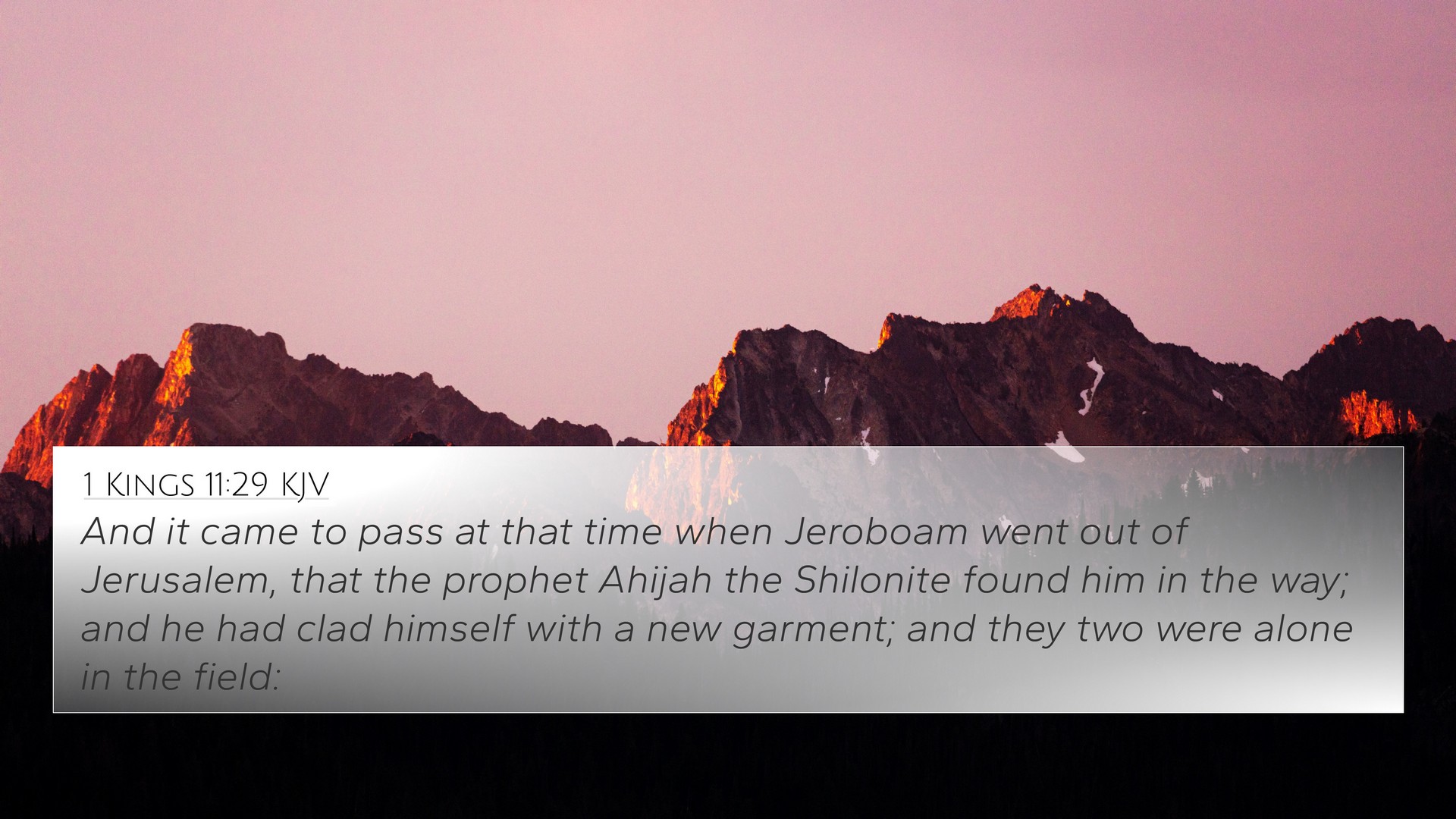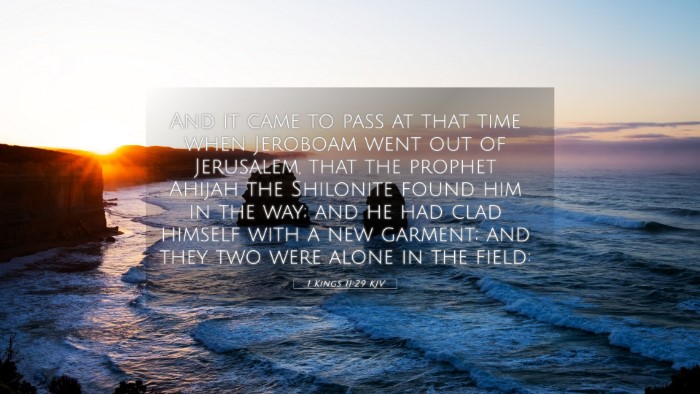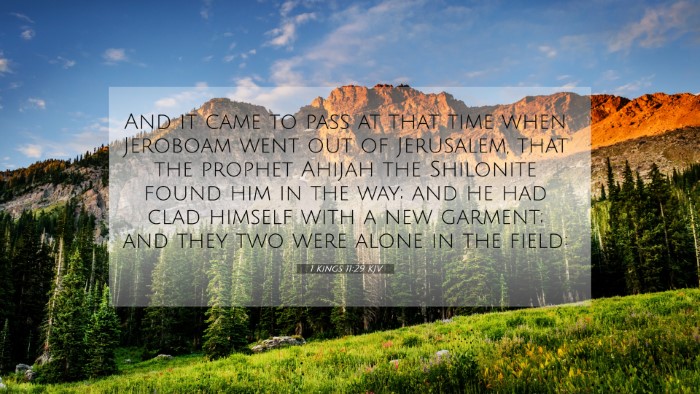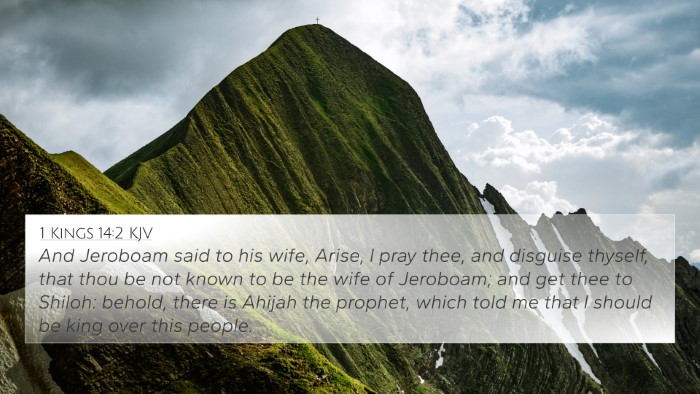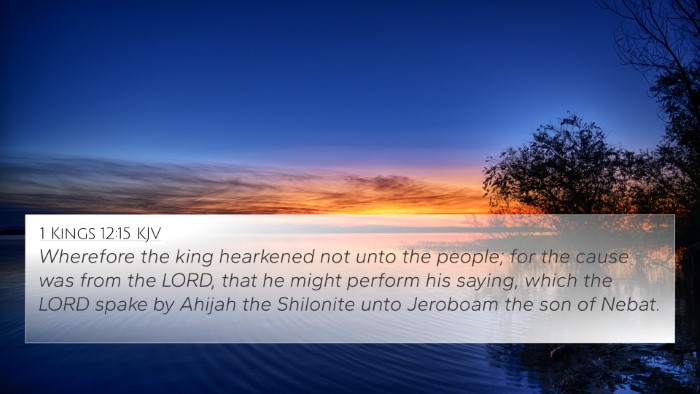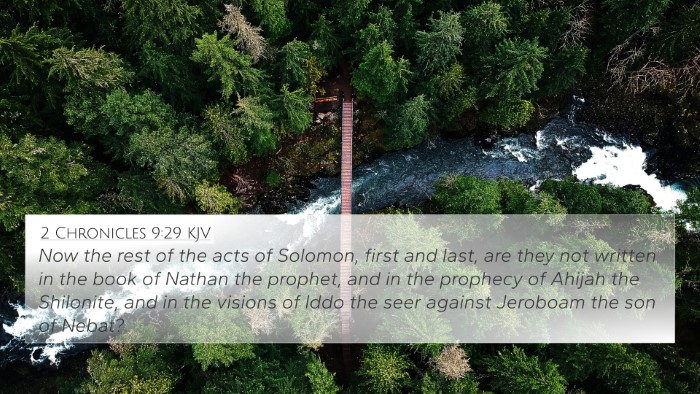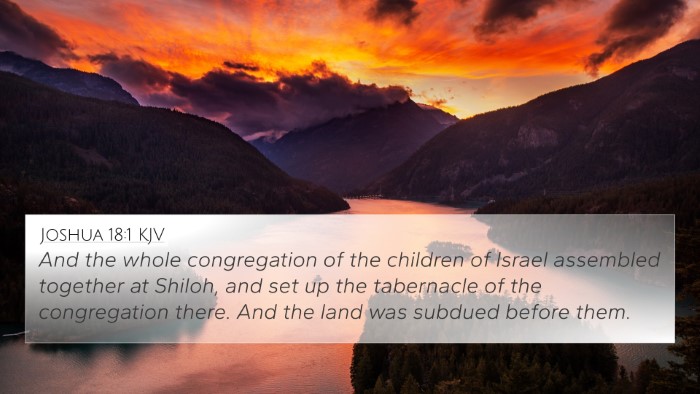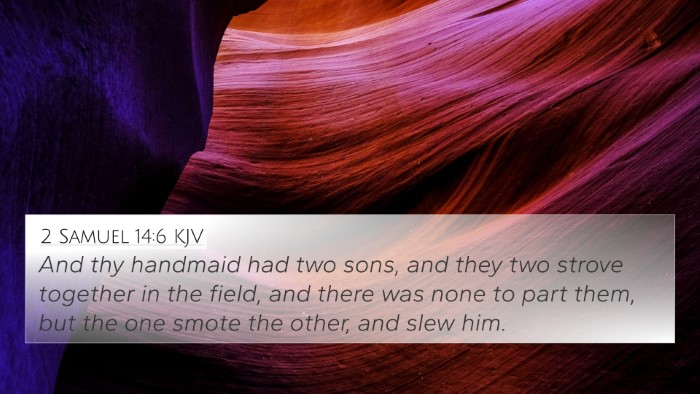Understanding 1 Kings 11:29
Verse: "And it came to pass at that time, when Jeroboam went out of Jerusalem, that the prophet Ahijah the Shilonite found him in the way; and he had clad himself with a new garment; and they two were alone in the field."
Summary of the Verse
This verse marks a pivotal moment in the narrative of the divided kingdom of Israel. Jeroboam, upon leaving Jerusalem, encounters the prophet Ahijah who is instrumental in conveying God’s plan regarding Jeroboam's future leadership over ten tribes of Israel. The "new garment" symbolizes a new beginning for Jeroboam, signifying both potential and responsibility.
Commentary Insights
Matthew Henry's Commentary
Henry suggests that the meeting between Jeroboam and Ahijah is highly significant, highlighting the divine selection of leaders. He emphasizes that God's providence orchestrates events and individuals to fulfill His plans. This encounter foreshadows the eventual division of the kingdom, recognizing God's sovereignty in human affairs.
Albert Barnes' Commentary
Barnes notes the importance of the prophet's actions, asserting that God's communication through prophets illustrates His guidance. He points out that the "new garment" worn by Jeroboam symbolizes the new responsibilities and opportunities bestowed upon him. The narrative showcases both God's judgment upon Solomon for his idolatrous ways and His plan for Israel's future through Jeroboam.
Adam Clarke's Commentary
Clarke elaborates on the significance of the prophet’s location and Jeroboam's experience. He discusses the prophetic intention as a direct response to the spiritual decay seen in Israel. Clarke focuses on the prophetic mantle with which Jeroboam is figuratively adorned, symbolizing his immediate calling into leadership and the shift in Israel's leadership dynamics.
Related Bible Cross References
- 1 Kings 12:16 - The reactions of the people upon Jeroboam's ascension.
- 2 Chronicles 10:16 - Similar responses to Jeroboam as ruler.
- 1 Kings 11:31 - Ahijah's prophecies of the kingdom's division.
- 1 Samuel 8:7-9 - God's warning about kingship.
- Genesis 49:10 - Foretelling the ruler’s lineage.
- Romans 13:1 - God’s sovereignty over governing authorities.
- 2 Samuel 7:14-15 - God’s covenant promise to David.
- Micah 5:2 - Prophecy of leadership from Bethlehem.
- Acts 2:30 - The promise to David regarding his lineage.
- Matthew 1:12 - The genealogy of Christ through David.
Thematic Connections and Interpretations
This narrative invites comparative Bible verse analysis, showcasing the intricate linking of biblical scriptures through themes of leadership, prophecy, and divine purpose. The interactions between God, His prophets, and chosen leaders intersect throughout the biblical text, providing rich opportunities for thematic Bible verse connections. Understanding this passage enhances one’s grasp of Israel's history and God's ongoing revelation to His people.
Tools for Bible Cross-Referencing
For deeper engagement with scripture, utilizing a Bible concordance can effectively enhance your study. Embrace resources that aid in cross-referencing Bible study methods. A well-structured Bible cross-reference guide can provide insight into connections between Old and New Testament verses.
Conclusion
The encounter in 1 Kings 11:29 serves as a crucial intersection of prophecy and leadership, illustrating God’s sovereign plan in the establishment of Jeroboam's rule over Israel. The rich theological and historical themes found within emphasize the importance of understanding the context of biblical narratives through cross-referencing. Through the observations from Matthew Henry, Albert Barnes, and Adam Clarke, insights are gained into the multifaceted implications this verse holds in the broader biblical narrative.
Please consider how the lessons from Jeroboam's encounter with Ahijah influence our understanding today, especially about God’s purpose and the role of prophetic voices in guiding His plans.
